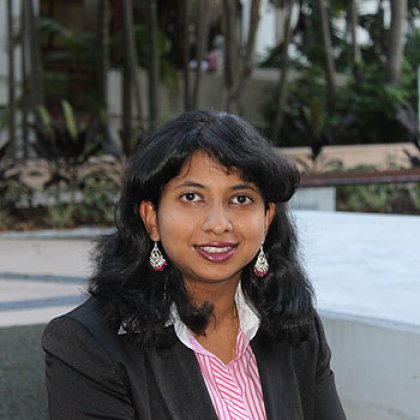
Research conducted at The University of Queensland's School of Economics has demonstrated the important role non-financial incentives play in attracting and retaining general practitioners (GPs) to rural and remote areas of Australia.
The study, undertaken by PhD graduate Dr Abhaya Kamalakanthan, adopted an innovative approach to the analysis of doctor supply by applying both quantitative and qualitative data collection tools, which expanded on previous data available. It involved interviewing representatives of health workforce agencies, State and Federal Governments, hospitals, medical schools in Australia, and a survey of 1000 GPs in four Australian states to find out which factors matter the most to rural GPs, many of whom are foreign-born overseas-trained doctors.
"In recent times, the Australian Government has introduced a number of financial incentives aimed at enticing more urban GPs to the rural areas of the country. Yet we are still witnessing a supply shortage of GPs in many rural and remote communities. This suggests that money incentives alone may not solve the supply problem. This led me to ask the question: How satisfied are GPs with the financial and non-financial incentives of their current geographical location?" she said.
The results of Dr Kamalakanthan's analysis suggest that there are a number of non-financial incentives which are of particular relevance to policy-makers as possible solutions to improve rural GP supply.
"On the whole, GPs appear to be satisfied with the current levels of remuneration and other financial incentives. Hence, the focus of policy-making needs to be expanded to include non-financial incentives, such as the flexibility of working hours and the level of professional support GPs receive at work," he said.
Dr Kamalakanthan said two major trends had emerged with respect to the issue of flexibility of working hours.
"Many female GPs and younger GPs are now less willing to work longer hours, opting instead for more flexible working conditions. As a result of this change in attitude by females and younger GPs, older GPs are now being asked to work longer hours than they have had to work in the past," she said.
However, she says she believes that it is important for female GPs in the rural areas to be provided with adequate non-financial support which enables them to work part-time, but still make a genuine contribution to the profession.
Dr Kamalakanthan said: "This is especially vital given the growing feminisation of the GP workforce and my finding that women are currently less likely to work in the rural areas than men. That said I also found that female GPs prefer to work in a multidisciplinary, team-based environment, which would allow them to work on a rotational short-term basis and involve more professional interaction with and support from other GPs. I believe that this is a potential solution that could be explored by policy-makers."
Another key focus raised in the study is that rural GPs are most likely to suffer from stress caused by longer working hours. Dr Kamalakanthan identified the importance of reducing the workload of older and rural GPs, in order to prevent high stress levels and burn-out.
In addition, she found that foreign-born GPs expressed greater dissatisfaction with their level of support from other GPs and specialists.
"Based on my findings that Australia will continue to rely on foreign doctors to fill the gaps in rural supply, it is crucial that foreign-born GPs are kept especially satisfied with their geographical location given that they are more likely to work in the less popular rural areas than Australian GPs," she said.
Dr Kamalakanthan, an economist in AECOM's Strategic Planning and Advisory group, said the findings drawn from her research would help address an important policy problem and enhance general public awareness about the factors in developed countries such as Australia, that are the key determinants of the supply of GPs, thus informing future policy choices.
Media: Rachel Tolley (07 3365 4959, r.tolley@uq.edu.au).
.jpg)



